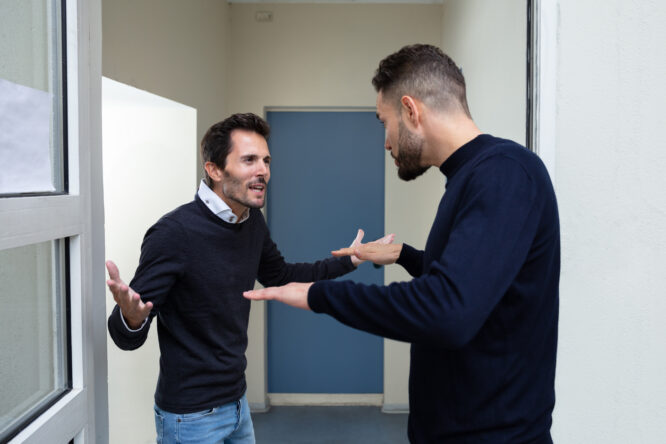Friendships don’t always fall apart due to big fallouts or dramatic betrayals.

Sometimes the people you think are closest to you slowly show signs that they were never really in it for the right reasons. While it can be tempting to brush those things off as quirks or just “how they are,” some patterns speak louder than words. If you’ve been second-guessing a connection, here are some clues—some subtle, some obvious—that someone might not be a real friend after all.
1. They only show up when they need something.

They go quiet when things are calm, but suddenly reappear when they need a favour, advice, or emotional support. The conversation always leads back to their crisis or their plans, and once they’ve got what they came for, the contact drops off again. You start to feel like a pit stop, not a person. Real friends check in because they care—this one checks in because they’ve run out of options. It’s not the same thing, and deep down, you know it.
2. They never ask how you are and actually listen to the answer.

They might say, “How are you?” as a formality, but you can tell they’re just waiting for their turn to talk. When you do open up, the subject shifts quickly—or your words are met with a vague “Oh no, that sucks” before they move on. It leaves you feeling a little empty after each interaction. A real friend leans in when you speak. A not-so-real one just waits for the chance to turn the spotlight back on themselves.
3. Your good news never seems to land well with them.

You share something exciting, and their reaction feels flat. Maybe they give a polite smile, change the subject, or hit you with a subtle dig disguised as humour. It’s like they can’t fully celebrate your wins unless theirs are bigger. As time goes on, you stop sharing the things that matter because their reactions make you feel self-conscious or small. That’s not friendship—it’s quiet competition hiding behind forced support.
4. They never show up unless it benefits them.

They’ll come to your party if it sounds fun, but not if it’s something meaningful to you. They’ll hang out if they’re bored, but they won’t rearrange anything to support you when you actually need it. Their version of friendship is transactional. They don’t invest unless there’s a clear return. That kind of selective loyalty leaves you carrying all the emotional weight.
5. They downplay your problems, but blow theirs up.

If you open up about something difficult, they respond with “That’s nothing,” or bring the focus back to how much worse they’ve had it. There’s no room for you to feel what you’re feeling without being dismissed or overshadowed. You end up managing your emotions more around them than anyone else. A true friend doesn’t compete over whose life is harder—they just sit with you in yours.
6. They disappear during your hard seasons.

When things get messy, they’re suddenly too busy, too distant, or just unavailable. They might check in once with a vague “Hope you’re okay!”—but they’re nowhere to be found when you actually need support or consistency. Hard times reveal who’s really in your corner. If they vanish when things get uncomfortable, that silence says more than any excuse ever could.
7. You feel drained after spending time with them.

You hang out, but instead of feeling connected, you leave feeling flat or mentally tired. Maybe they talk over you, steer everything toward themselves, or carry a constant cloud of negativity that sucks the energy out of the room.
Friendship should add something to your life—not consistently take from it. When every interaction feels like emotional labour, you’re probably doing more work than the relationship’s worth.
8. They make subtle digs and call them “jokes.”

They laugh while saying things that sting, and if you speak up, you’re told you’re too sensitive. There’s always a layer of mockery underneath their humour, and it almost always targets your insecurities. Real friends tease with warmth. These digs, though, feel pointed. When someone keeps joking at your expense, it stops being funny and starts revealing something about how they really see you.
9. They talk about people behind their backs—a lot.

They regularly vent about their “close” friends, airing details you’re sure weren’t meant to be shared. At first, it feels like you’re in the loop. But then you start wondering: if they talk about them like that, what are they saying about you? Gossip disguised as bonding has an expiry date. Eventually, it creates more distrust than connection. If they’re always running someone else down, it’s only a matter of time before you’re next.
10. They make you feel like you’re asking for too much.

You ask for their time, support, or presence, and it suddenly feels like a burden. They act like helping out is a massive favour, even when it’s something they’d expect from you without hesitation. Eventually, you stop asking. You scale back your needs, and that imbalance becomes your new normal. However, real friendship isn’t about making you feel like you’re too much—it’s about showing up willingly, not reluctantly.
11. They never apologise, just deflect or disappear.

When they mess up or hurt you, there’s no real accountability. Either they ghost the conversation, change the subject, or twist things to make you feel at fault for bringing it up. Without accountability, trust disappears. Even small missteps build resentment when they’re never acknowledged. A friend who refuses to take ownership probably isn’t as invested as you are.
12. You can’t be fully yourself around them.

You find yourself filtering your words, shrinking your reactions, or hiding parts of yourself just to keep the peace. It’s subtle at first, but eventually, you realise you’re playing a version of yourself that fits them better. Good friendship doesn’t require performance. If you feel like you’re constantly editing yourself, it might be time to ask whether they actually like the real you, or just the version that makes them comfortable.
13. They only reach out when they’re lonely or bored.

You hear from them out of the blue, and it always starts the same way—“Hey stranger!” followed by a vague invite or a vent session. It’s never consistent, never thoughtful. It’s just convenience disguised as connection. That kind of reach-out might seem friendly, but it leaves you feeling like an emotional placeholder. You’re not a backup plan, and you shouldn’t feel like one.
14. You feel more alone with them than without them.

This is the most telling one. When you’re together, you don’t feel seen. When you open up, you don’t feel heard. When you leave, you feel worse, not better. And that ache stays with you longer than the visit did. Friendship should feel safe, mutual, and honest. If someone consistently makes you feel invisible in their presence, it’s probably not friendship; it’s just history you haven’t let go of yet.




